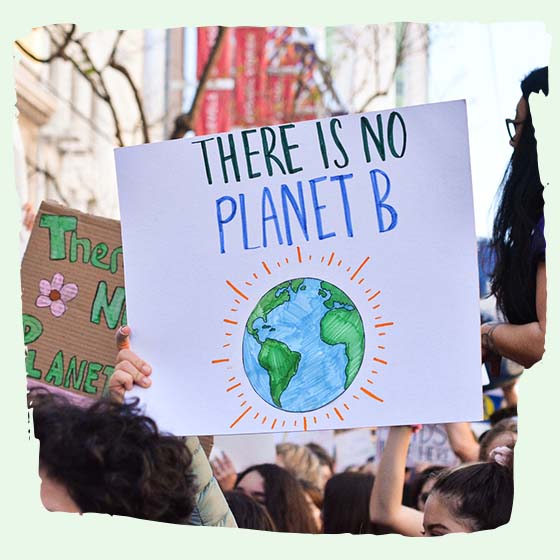We are experiencing more and more natural disasters. Even in Central Europe, where we had the feeling for a long time that we would be spared from serious disasters, extreme weather situations are becoming more and more common. This is linked to human-caused climate change.
Current situation
We are deeply shocked by what happened in Germany, Austria, Belgium and the Netherlands in July. Extreme rainfall has caused enormous damage in large parts of the country. Many people have lost their homes and their belongings. They no longer have clean drinking water or electricity. Almost 200 people lost their lives.
We are aware that natural disasters can occur again and again in Central Europe. However, “once in a generation” disasters are becoming increasingly common. There are 4.2 billion people affected and 1.2 million dead worldwide. Between 2000 and 2019, the number of natural disasters almost doubled compared to the previous 20 years. How can this be?
The climate change
Our Earth is surrounded by an atmosphere that is a mix of different gases. This atmosphere is damaged by the emission of greenhouse gases. Carbon dioxide traps the sun's heat and thus heats the earth. But human activities, such as cutting down trees, reduce the absorption of carbon and leave too much of it in the air. This in turn means that too much heat is absorbed and cannot be released again. Global temperatures are rising.


Extreme weather situations caused by climate change
Significantly more extreme weather situations are increasingly occurring due to global warming. The temperature is rising: poles are melting, sea levels are rising, droughts, tsunamis and floods are occurring. The people of Central Europe first had to experience a flood disaster. The reason for this is, among other things, that a warmer atmosphere can store more water.
Higher temperatures can lead to an intensification of the water cycle. The increase in atmospheric water vapor capacity increases by 7% per degree Celsius. This also increases the absolute water vapor content in the air. On the contrary, the relative humidity changes only slightly. These factors mean that the frequency of precipitation changes little in warmer climates. However, more water vapor is available per precipitation, which can lead to extreme weather events. This means that there will be less light and moderate rainfall, but more heavy rain situations will be triggered.
What can you do about climate change?
It is very easy to live more ecologically and thus contribute a small part to combating global warming. For example, you could get your electricity from an independent eco-provider, ride a bike instead of a car to work, consume less meat and more vegan alternatives , avoid short-haul flights, or buy organic products from your region. It's usually just small changes that can have a big impact!
Sources:
- https://www.tagesschau.de/ausland/naturkatastrophen-klimawandel-101.html
- https://www.benjerry.de/blog/wie-der-klimawandel-naturkatastrophen-beeinflusst
- https://wiki.bildungsserver.de/klimawandel/index.php/Starkniederschl%C3%A4ge_und_Hochwasser

















